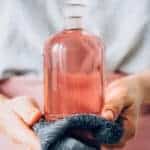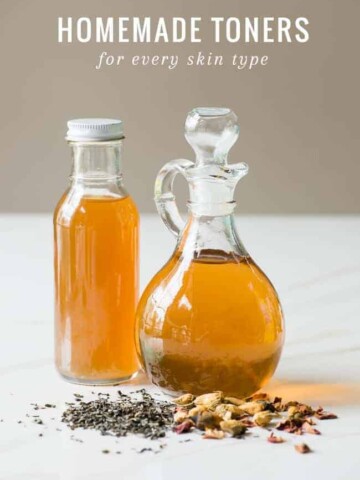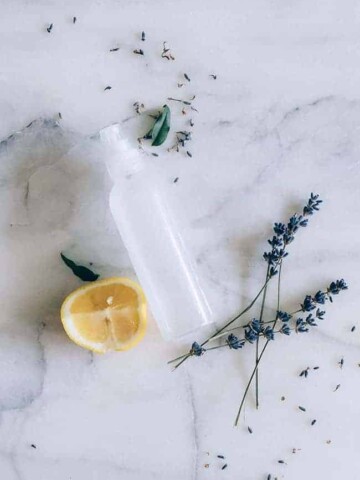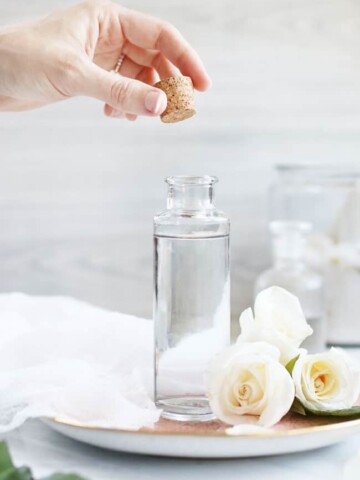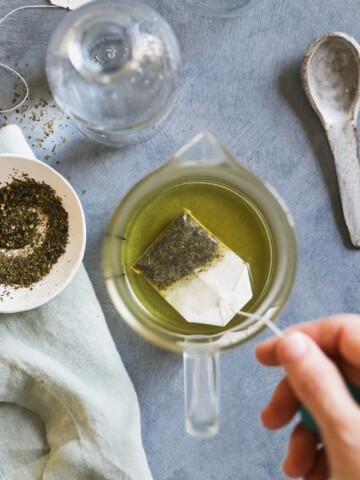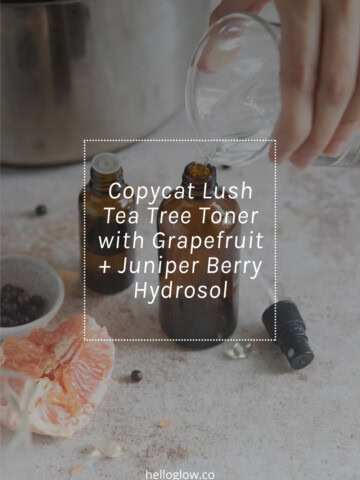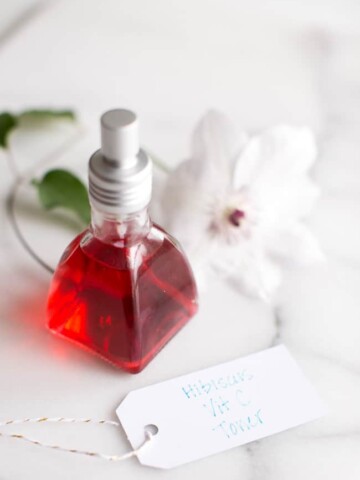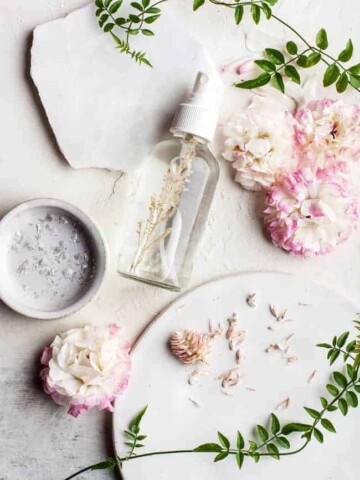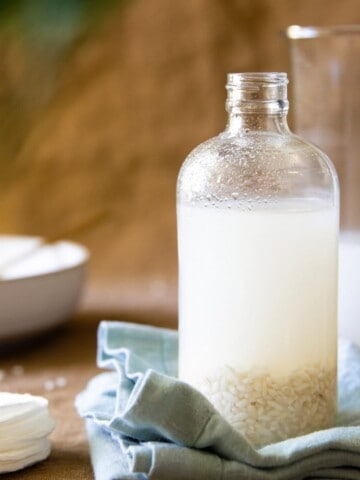I try dozens upon dozens of homemade beauty treatments each year, and I’m always racking up a list of some of my favorites. One that secured a spot at the very top is this fabulous rosewater toner. It was recommended to me by a friend who came up with the recipe. I was so surprised by how easy and simple it was to create and how effective a treatment it was during and after use.
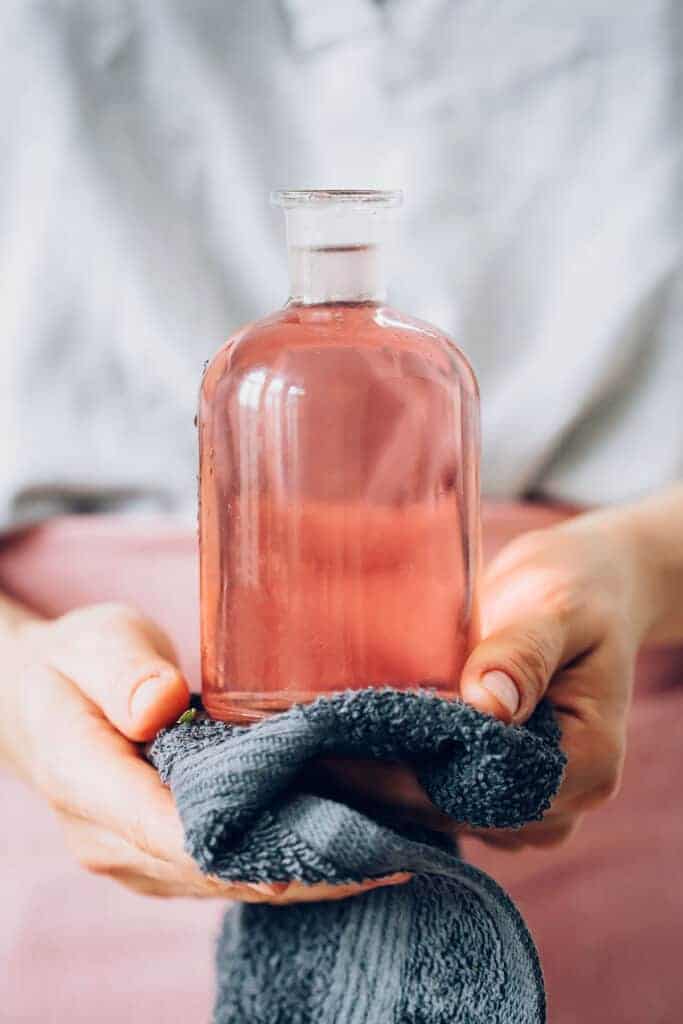
Jump to:
Benefits of Using Facial Toner
Personally, I love the feel of using toner but gave it up ages ago because many of the drugstore versions contain alcohol, which was making my dry skin even worse. Since this toner is made with only natural ingredients and free from alcohol, it feels super pampering and hydrating on the skin.
When used regularly, toner:
Decreases oil production - By replenishing and locking in moisture, toner encourages your skin to produce less oil than it might otherwise.
Temporarily tightens skin - Toners help tighten the gaps between cells, making it more difficult for impurities to penetrate the skin.
Makes pores less noticeable - Toner helps remove dirt and impurities in the skin, clearing pores and making them look less noticeable.
Preps skin for serum and moisturizer - Using toner prior to moisturizer makes skin more supple and better able to absorb whatever else you put on it.
Ingredients
To understand the benefits of rosewater toner, we should explore the ingredient list, which is surprisingly only three items:
- Rosewater
- Witch hazel
- Lemon juice
Benefits of Rosewater
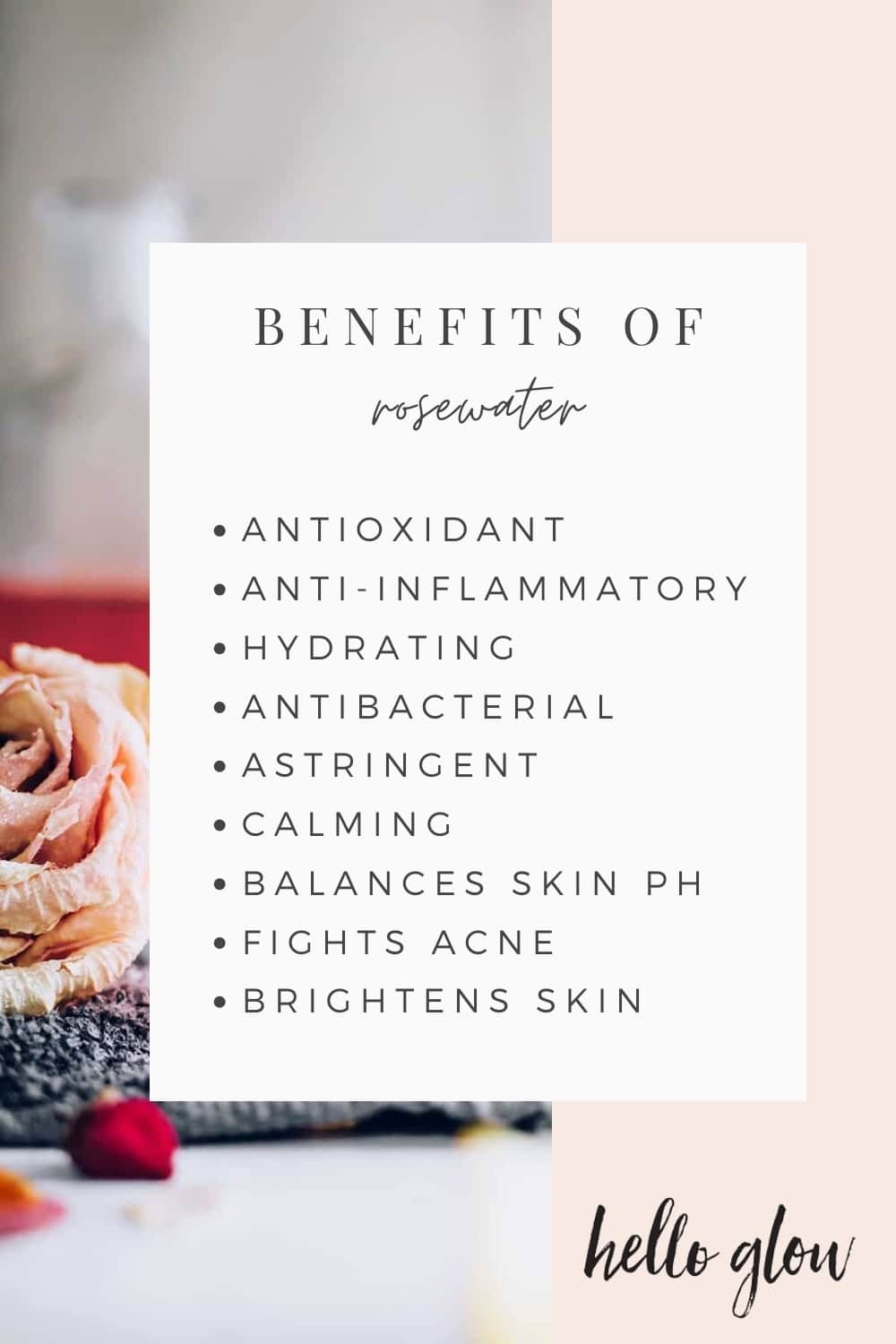
Rosewater has long been used as a beauty treatment, thanks to its impressive protective anti-inflammatory, antioxidant, and hydrating effects [source]. It provides both astringent and antibacterial benefits, which is what makes it particularly useful in a toner since the goal of a good toner is to absorb excess dirt, oil, makeup, and any other grime that can sneak its way into your pores throughout the day (and night).
In addition to anti-inflammatory effects, rosewater has been found to be hydrating and calming [source], especially for those with dry, sensitive skin and those with a history of eczema, acne, or rosacea. A recent study has shown that even the scent of rose reduces the effects of environmental stress mediators on the skin [source].
It has healthy antioxidant effects to protect the skin from damage [source], and it is also antibacterial [source]. Rosewater may further promote collagen and elastin synthesis because it’s high in vitamin C [source] and is helpful to incorporate into one’s anti-aging routine.
Toner is also used to help balance the pH of your skin, which in itself helps fight acne. This leads to clearer skin overall with less red splotches and brown spots. And a rose extract has been shown to whiten skin and reduce the appearance of wrinkles [source], so making a toner from it seems to be an effective solution.
Finding a gentle toner for acne-prone skin may be a daunting task, so looking to ingredients that help to balance the skin’s pH level, such as rosewater, is essential to maintaining healthy, hydrated skin.
Benefits of Witch Hazel
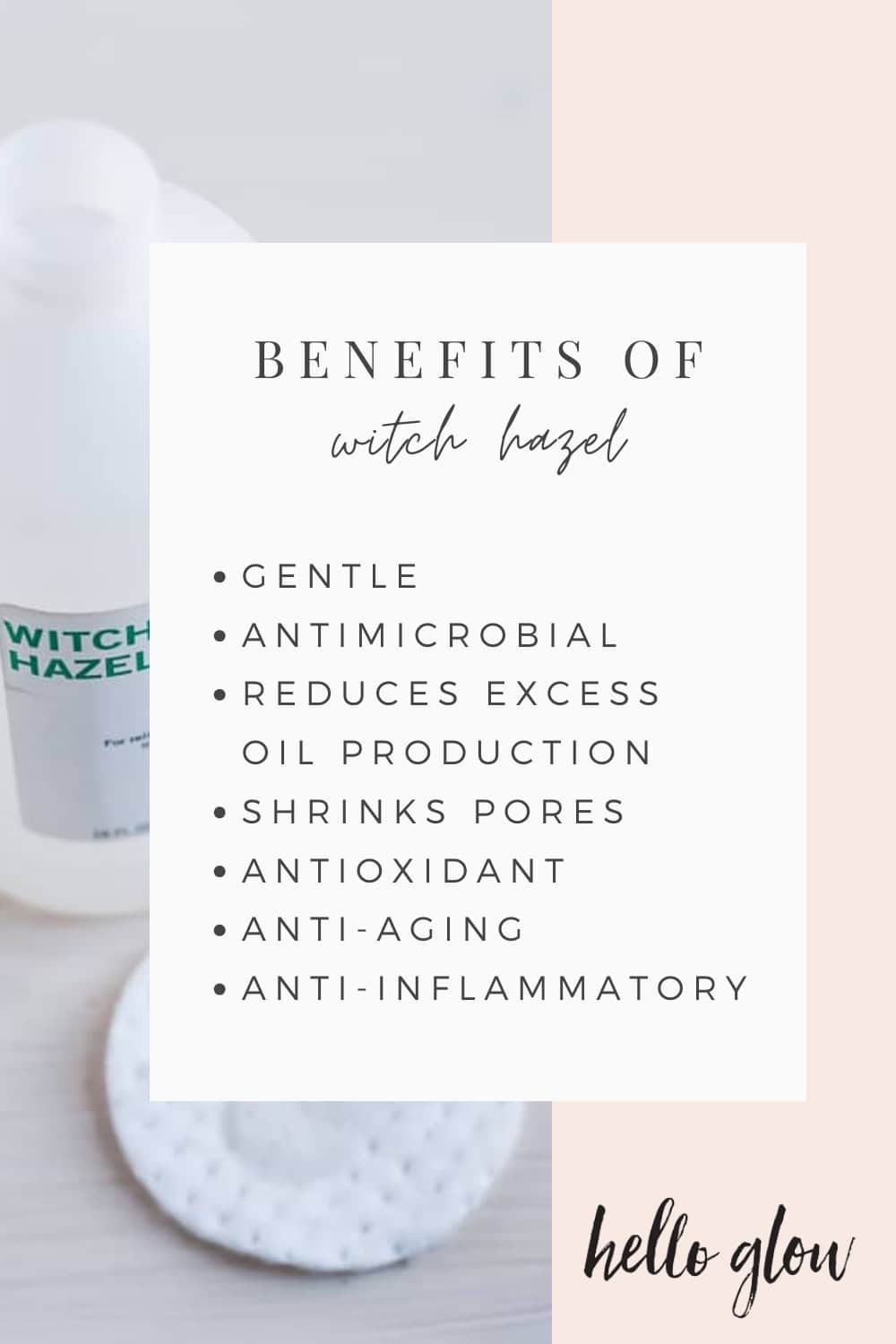
Witch hazel is a natural ingredient found in pretty much any store-bought toner (and plenty of homemade versions). It comes from a flowering plant in the Hamamelidaceae family (native to North America and Japan), and it has some impressive skin-saving benefits.
Unlike certain alcohol-based toners that strip the natural oils from the outermost layer of the skin, witch hazel is gentler while reducing excess oil production, and as a result, it has antimicrobial properties (bacteria thrive off sebum production).
First, it helps shrink the appearance of pores without stripping the skin of the moisture it needs to function properly. It’s also super rich in antioxidants called tannins that help fight off free radicals found in the environment that lead to premature aging.
Tannins were initially found to have wound healing properties in the 1980s and have also been shown to have antimicrobial and anti-aging properties [source].
Witch hazel has been utilized for various inflammatory skin conditions, including eczema, acne, and psoriasis.
Benefits of Lemon
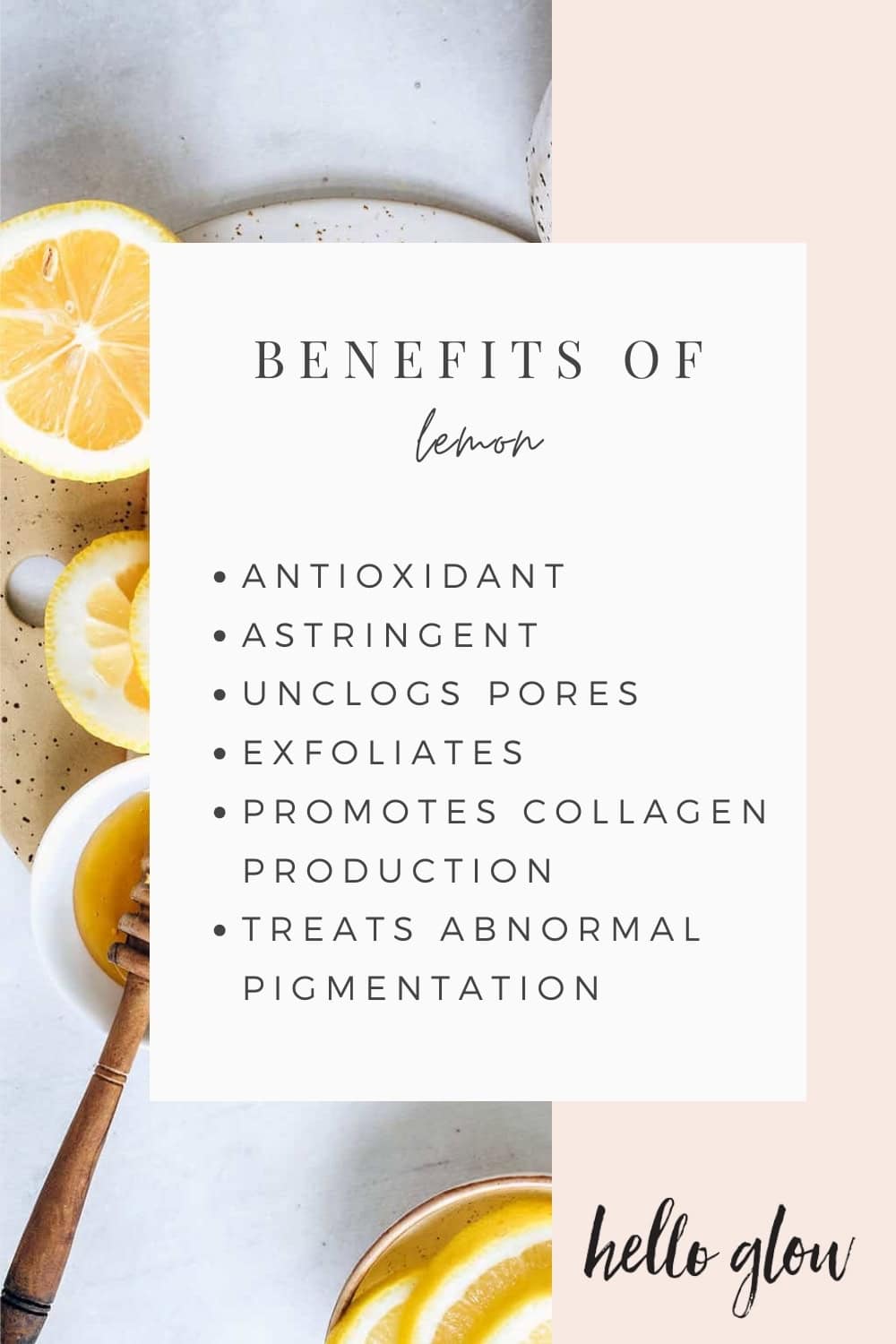
Lemon is another great skincare ingredient because it’s rich in vitamin C, another potent antioxidant that helps ward off those damaging free radicals [source]. It makes a good ingredient in an astringent because it helps unclog pores, which results in smoother, tighter skin overall.
Interestingly, lemon essential oil—containing natural levels of citric acid—has been utilized in the cosmetic and skincare industry as a potent exfoliator, promotes collagen production, and treats abnormal pigmentation [source].
Of note, take caution when using lemon on the skin. When exposed to sunlight, citric acid may result in photosensitivity and hyperpigmentation of the skin, playfully known as “lime dermatitis” or phytophotodermatitis. Always use lemon juice at night and wear plenty of sunscreen the next day if you plan to spend time in the sun.
How to Make Rosewater Toner
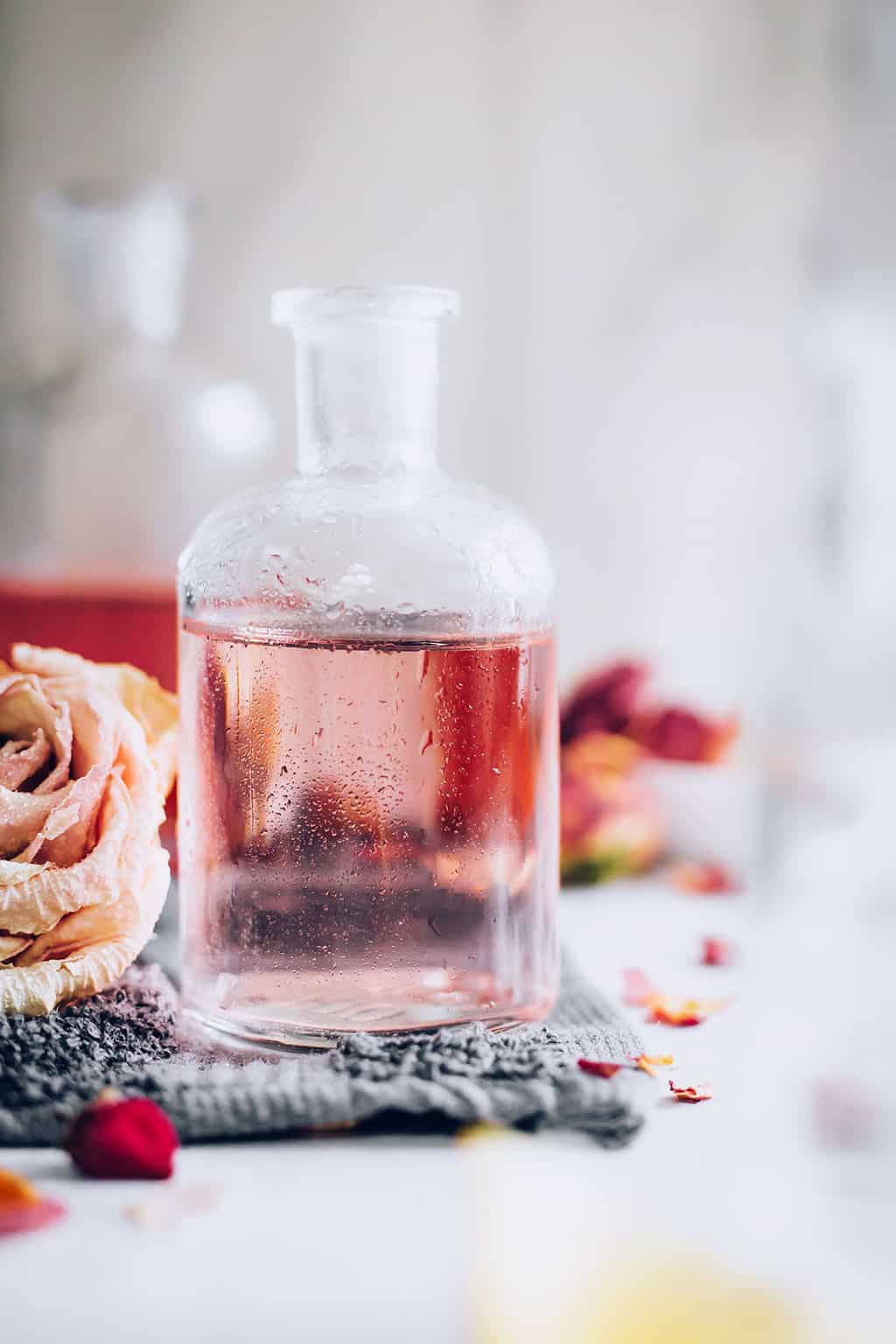
Combine ingredients in a lidded glass jar.
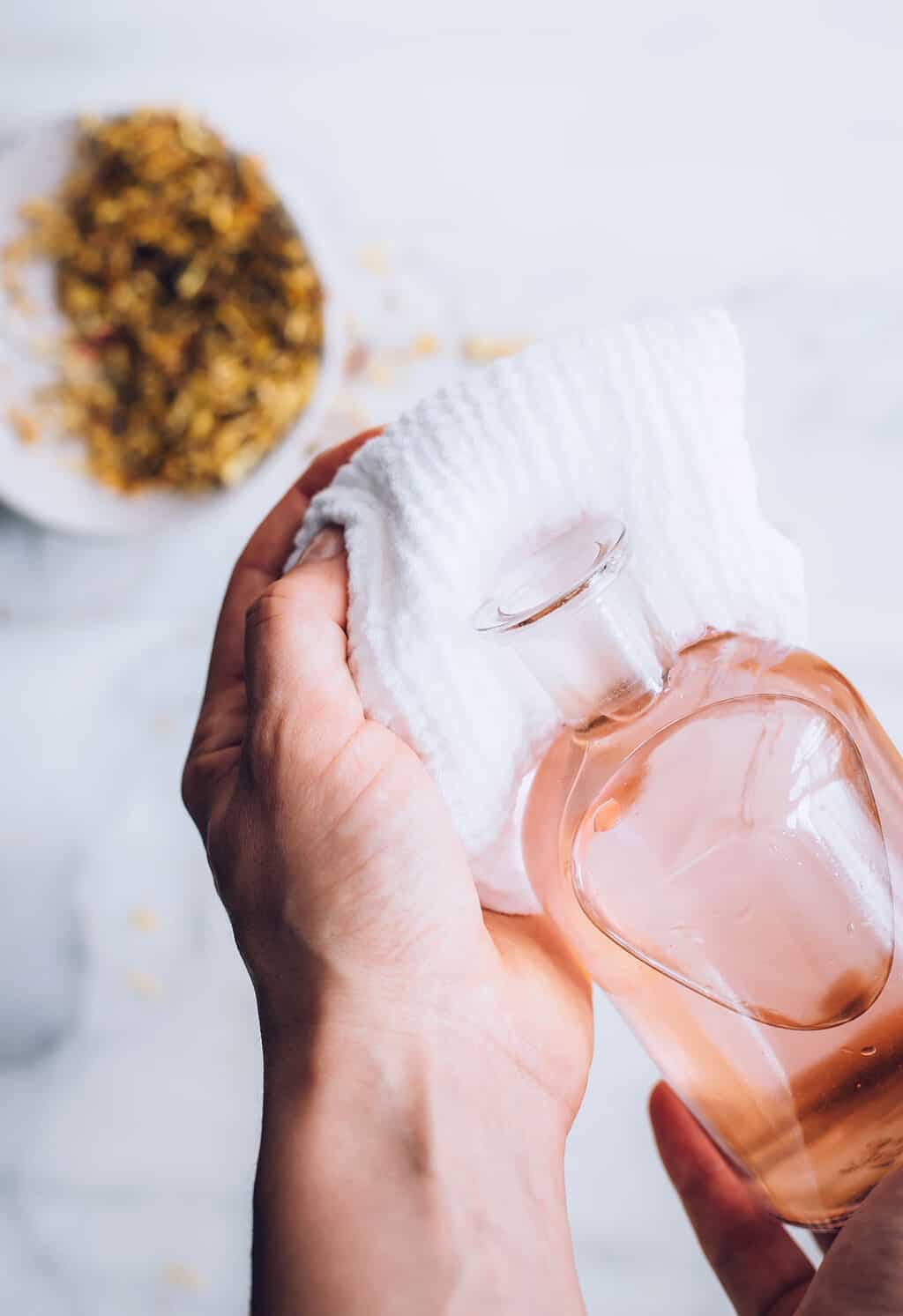
Apply the toner to your cleansed face with a cotton ball, and follow up with a hydrating moisturizer.
Rosewater Toner FAQs
How long can this be stored?
Because it uses fresh lemon juice, you should store it in the refrigerator and use it within 1–2 weeks. To make it last longer, try using 5 drops of lemon essential oil in place of the fresh juice.
Why do I need alcohol-free witch hazel?
Alcohol is especially drying to skin and can make dryness and irritation worse.
Won’t lemon juice dry out my skin and make it sensitive to sunlight?
A little lemon juice shouldn't cause any problems. If you have sensitive skin, though, you might want to start with ½ tablespoon lemon juice and work your way up to the full amount. Use it at night only, and always wear sunscreen.
What moisturizer should I apply after using this rosewater toner?
We love natural moisturizers like jojoba, argan, and coconut oil. But you can use whatever products you like and that work well for your skin type.
Homemade Rosewater Facial Toner
Equipment
- 8-ounce glass jar with lid
Materials
- ½ cup rosewater
- ½ cup witch hazel alcohol-free
- 1 tablespoon fresh lemon juice
Instructions
- Combine ingredients in a lidded glass jar.
- Apply toner with a cotton ball after cleaning your face and removing makeup. Follow up with a hydrating moisturizer.
Notes
References:
1. Lee MH, et al. Skin anti-inflammatory activity of rose petal extract (Rosa gallica) through reduction of MAPK signaling pathway. Food Sci Nutr. 2018.
2. Mohebitabar S, et al. Therapeutic efficacy of rose oil: a comprehensive review of clinical evidence. Avicenna J Phytomed. 2017.
3. Curoux R, et al. A rose extract protects the skin against stress mediators: a potential role of olfactory receptors. Molecules. 2020.
4. Ögüt S, et al. The protective effect of rosewater against DNA damages and oxidant and antioxidant parameters of rats exposed to chlorpyrifos ethyl. PR Health Sci J. 2019.
5. Mahboubi M. Rosa damascena as holy ancient herb with novel applications. J Tradit Complement Med. 2016.
6. Pullar JM, et al. The roles of vitamin C in skin health. Nutrients. 2017.
7. Shin EJ, et al. Extraction conditions for Rosa gallica petal extracts with anti-skin aging activities. Food Sci Biotechnol. 2019.
8. Thring TSA, et al. Antioxidant and potential anti-inflammatory activity of extracts and formulations of white tea, rose, and witch hazel on primary human dermal fibroblast cells. J Inflamm (Lond). 2011.
9. Kaźmierczak-Barańska J, et al. Two faces of vitamin C—antioxidative and pro-oxidative agent. Nutrients. 2020.
10. Klimek-Szczykutowicz M, et al. Citrus limon (lemon) phenomenon—a review of the chemistry, pharmacological properties, applications in the modern pharmaceutical, food, and cosmetics industries, and biotechnological studies. Plants (Basel). 2020.
This post was medically reviewed by Dr. Rina Mary Allawh, M.D., a dermatologist who practices adult and pediatric medical dermatology, skin cancer treatment, and cosmetic dermatology. Learn more about Hello Glow's medical reviewers here. As always, this is not personal medical advice, and we recommend that you talk with your doctor.
Photos by Ana Stanciu

